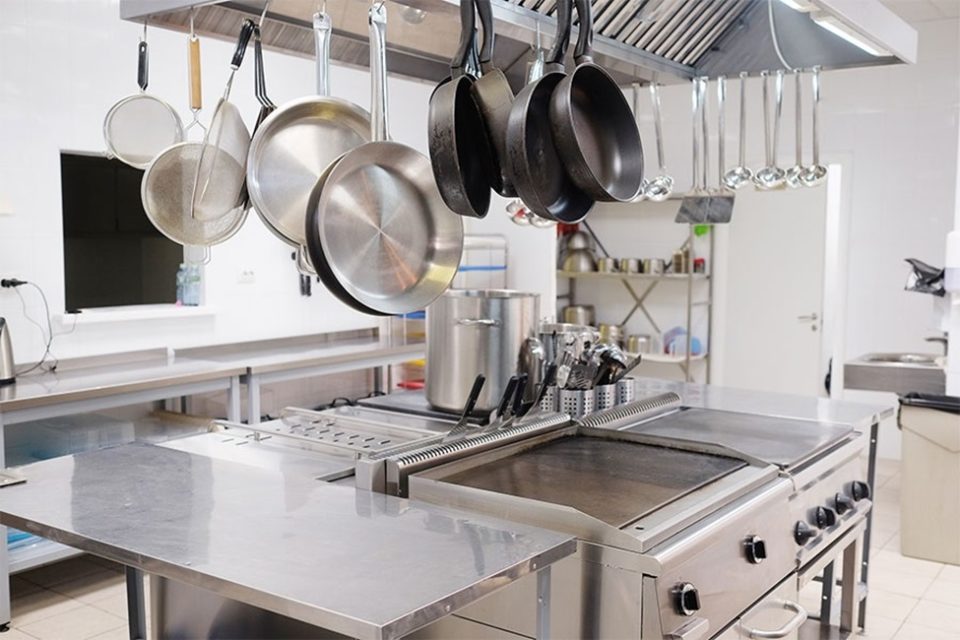Embarking on the endeavor to procure commercial kitchen equipment for your foodservice establishment demands a strategic approach to guarantee efficiency, functionality, and lasting value. From ovens, range hoods, refrigerators and dishwashers to specialty gear like food processors and coffee machines, relying on an experienced commercial kitchen equipment supplier is key to outfitting a workspace efficiently while meeting your budget. Throughout this process, it is crucial to bear in mind key considerations such as assessing operational needs, opting for a comprehensive range of equipment from a reliable supplier, weighing the pros and cons of new versus used equipment, prioritizing after-sales service and warranties, ensuring compliance with standards, exploring customization options, verifying permits and licenses, and carefully managing budget considerations. This holistic approach ensures that the chosen equipment and supplier align seamlessly with the unique requirements of your establishment, ultimately maximizing the return on investment for these essential assets.
Assessing Your Equipment Needs
Initiate the process by conducting a comprehensive assessment of your operational prerequisites, considering factors like menu composition, service style, output requirements, and available space. Involve chefs and managers in on-site walkthroughs to gather valuable insights. Pinpoint specialized equipment crucial for your offerings, be it smokers, pasta makers, or noodle pullers. Calculate the necessary equipment capacity tailored to diverse operational peaks, such as breakfast rushes versus consistent lunch services. Compiling a detailed list through this meticulous evaluation facilitates suppliers in suggesting the most fitting models and pieces that align seamlessly with your workflow and operational demands.
Range of Equipment Offered
Choose a supplier that functions as a one-stop destination, offering an extensive array of commercial kitchen equipment encompassing cooking, refrigeration, food preparation, storage, dishwashing, and more. Opting for a single, dependable point of contact streamlines the procurement process and facilitates efficient after-sales service. It is advisable to select reputable suppliers that not only stock equipment from esteemed global brands but also showcase their own line of high-quality products, ensuring a diverse and reliable selection for your specific needs.
New versus Used Equipment
Evaluate the trade-offs associated with the choice between new and used equipment. Although brand-new units showcase cutting-edge features and technology, there’s inherent value in high-quality reconditioned pieces, particularly for budget-conscious purchases. Opt for suppliers who meticulously refurbish used equipment and offer comprehensive warranties. It is crucial to conduct a thorough assessment of the cost implications, considering factors such as functionality, lifespan, and maintenance requirements, to make an informed decision that aligns with your specific needs and financial considerations.
After-sales Service and Warranties
Give preference to suppliers that go beyond merely delivering and installing equipment by providing robust after-sales support. This comprehensive support encompasses maintenance, addressing technical issues, supplying spare parts, and optimizing performance. It is essential to verify the duration and extent of warranties, as these can vary among commercial-grade equipment. Opting for a supplier with authorized service partners adds an extra layer of assurance, ensuring prompt and hassle-free repairs when needed, and contributing to a smoother and more reliable post-purchase experience.
Compliant and Certified Equipment
Verify that the selected equipment models adhere to critical standards, including NSF food safety, UL/ETL electrical certifications, and Energy Star ratings in accordance with local regulations. Request documentation from suppliers to validate compliance, providing assurance about the safety and performance of the equipment during inspections. This diligent verification process ensures that the chosen equipment meets essential industry standards, contributing to a secure and compliant operational environment for your foodservice establishment.
Customization and Modifications
Acknowledge that off-the-shelf standard equipment may not always align with unique requirements. Engage in discussions with your supplier in advance to explore potential modifications or additional accessories. Proficient suppliers have the capability to customize aspects such as cabinetry dimensions, integrate non-standard power configurations, and make other adjustments, ensuring that the equipment is tailored to suit the specific spatial and operational needs of your establishment. This collaborative approach enhances the adaptability of the equipment to your unique setup.
Business Permits and Licenses
Ensure that your chosen suppliers hold the requisite business permits or licenses for the installation and servicing of commercial kitchen equipment, thereby guaranteeing compliance with safety regulations. This precaution is pivotal in preventing potential regulatory issues during inspections for the approval of food service permits. Verifying the legal credentials of your suppliers contributes to a seamless and compliant process, fostering a secure operational environment for your foodservice establishment.
Budget Considerations
Establish a comprehensive equipment budget that encompasses both capital and operating costs. When comparing quotations from various suppliers, go beyond focusing solely on upfront expenses. Take into account the overall value by considering factors such as warranties, energy efficiency, after-sales service, and the expected lifespan of the equipment, as these elements significantly influence the total cost of ownership. Recognize that investing in high-quality, advanced equipment not only enhances productivity but also has the potential to deliver superior long-term value, making it a prudent choice for the sustained efficiency of your foodservice establishment.
In summary, the process of choosing the appropriate commercial kitchen equipment and supplier necessitates a meticulous assessment of available options. Dedicate the time to align your selections with the distinct requirements of your foodservice establishment, ensuring that each component meets the specific operational demands. This careful consideration not only enhances operational efficiency but also guarantees the maximum return on investment from these crucial assets, contributing to the overall success and sustainability of your foodservice enterprise.

